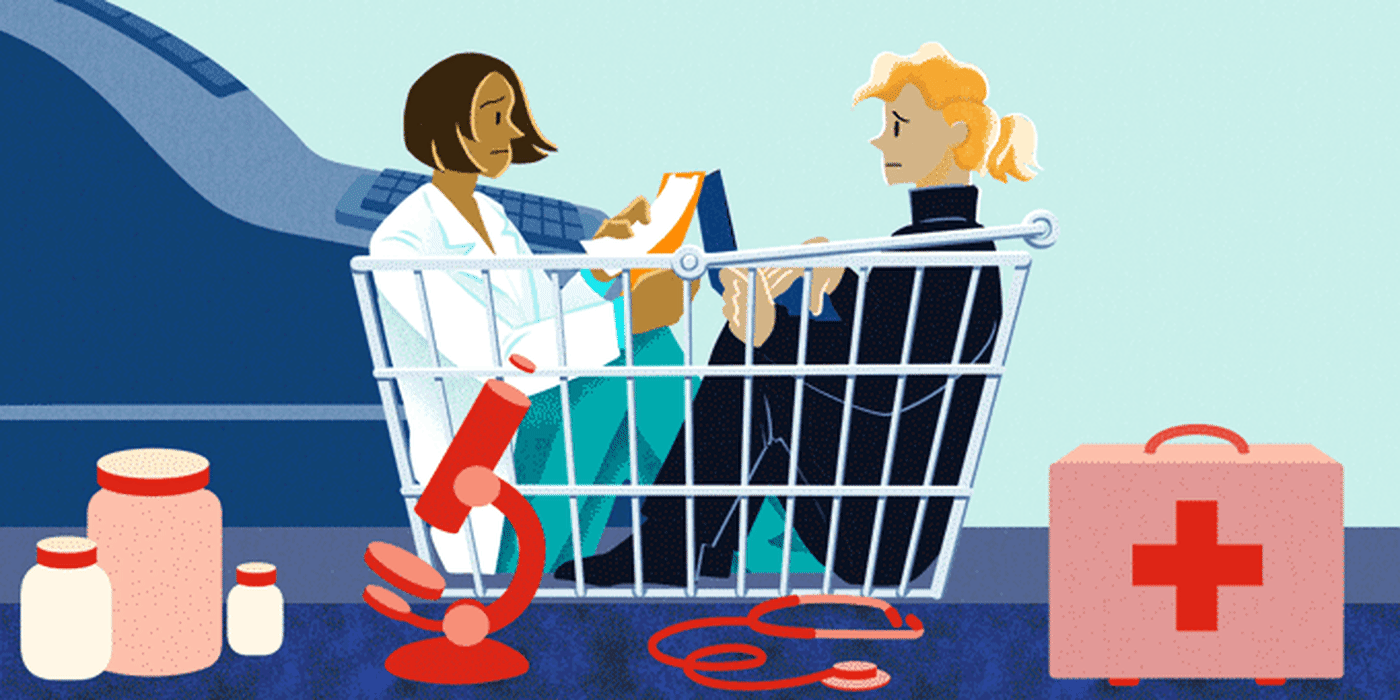Like many other Americans, I avidly followed the progress of the Elizabeth Holmes trial. Here was the legal conclusion of a story that I had grown up with; when I was a neuroscience major in college, Elizabeth’s face was everywhere. She was on the cover of Forbes, she was talking to Glamour magazine about how she wanted to make testing accessible for everyone — my mother wanted me to be her. At 19, I was cramming for organic chemistry exams while Elizabeth, at 19, was coming up with revolutionary technologies and seeking venture capital to turn her dreams into a reality. For now, the media coverage following the Theranos trial has focused on the ramifications of the verdict on Silicon Valley practices, but as a future medical professional, it truly makes you wonder what effect Silicon Valley and the accompanying mentality should have on medicine at all.
I would never fault someone for seeing the appeal of a “move fast and break things” approach to medicine. The medical field can be a beast of bureaucracy: physicians spend just as much time if not more on the phone haggling over insurance billing codes as with their actual patients. Even the most state-of-the-art medical records systems would make any modern 2022 coder laugh hysterically at its lack of user-friendliness. Many diseases remain untreatable and people still die from treatable diseases due to a lack of access to care. There is much that needs to be improved in medicine (and that was before the pandemic exposed even more base flaws about the structure of our health care system).
While Theranos was a down-and-out fraud case, many other health care-related companies exist in a gray area. 23andMe, the genetic testing company, claims that customer data remains private but recently went public. What happens when a company that owns patient data becomes financially beholden to outside corporations? In a recent article from The Guardian, the Virgin Acquisition Group that is purchasing 23andMe “cited the vast proprietary dataset of DNA that would allow Virgin to unlock revenue streams across digital health, therapeutics, and more.” To date, 23andMe has had 12 million customers since its inception. I cannot begin to think how such a vast dataset could be used or misused for profit.
23andMe refers to individuals who pay for their services as customers but in the biomedical field, what is the line between “customer” and “patient”? “Customer” would denote a person who pays money in exchange for a service but patients can be thought of in the same way since they pay to receive health care. When it comes to customers, it is both legally and morally easier to accept when they give up certain rights upon paying to utilize a service — but patients seek a service that is crucial to their health. In the United States, patients receive health care services knowing these services inherently come with certain protections: such as HIPAA, and the knowledge that tissue harvested from them during procedures may not be utilized for any use that they did not expressly approve. I worry that many startup executives without a medical background might not always make the distinction between “customer” and “patient.” Patients deserve certain rights at baseline that might not always be afforded to customers, especially when it comes to data privacy and acknowledging the inherent risk involved in seeking out the services of a new, unproven company.
In addition, I might feel more at ease when startups make active efforts to recruit physicians with specific expertise in the field in which the company seeks to act. For instance, if a company is using artificial intelligence to identify novel cancer therapeutics, they should recruit top oncologists to their cause. These physicians frequently fill the role of “chief medical officer,” but if leadership structures are such that the physician is vastly outnumbered by non-medical professionals, how much power would they truly wield in the decision-making process?
With the guilty Elizabeth Holmes verdict, there has been much talk in Silicon Valley about changing practices that sell new technologies to investors and customers before they have been perfected. I would hope that biotechnology and health care startups truly take that lesson to heart and remember that their individuals who pay for their services are patients first and customers second.
What responsibility do you think health tech companies have? Share your standards in the comments.
Vicky is a MD/PhD student at UT Southwestern Medical Center currently in the process of obtaining her PhD in Biological Chemistry. Her areas of interest in writing include health policy, social determinants of health, and the intersection between basic science and the world of clinical medicine. When she's not in the lab, she enjoys reading, hiking, cooking, yoga, and hanging out with her dog, Dobby. Vicky is a 2021–2022 Doximity Op-Med Fellow.
Illustration by April Brust







